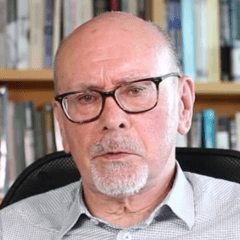You are not currently logged in. Please create an account or log in to view the full course.
The State of the Economy in 1933
- About
- Transcript
- Cite
US History – The New Deal, 1933-41
In this course, Professor Peter Fearon (University of Leicester) explores Franklin D. Roosevelt's New Deal. In the first module, we think about the problems facing the US economy when Roosevelt came to power in March 1933, including the almost total collapse of the banking system, high levels of unemployment, and rapid deflation. In the second module, we think about Roosevelt's belief in "bold, persistent experimentation" in tackling these problems, before turning in the third module to explore the initiatives implemented by Roosevelt to support the US businesses – particularly in the financial and agricultural sectors. In the fourth module, we think about the range of social welfare programmes implemented as part of the New Deal – including programmes such as the Federal Emergency Relief Administration (FERA) and the Works Progress Administration (WPA), and the establishment of social security and old age pensions – before turning in the fifth module to think about the longer-term legacy of the New Deal.
The State of the Economy in 1933
In this module, we think about the many economic problems facing President Roosevelt when he came to power in 1933, focusing in particular on: (i) the near total collapse of the banking system; (ii) the high levels of unemployment; (iii) the problem of deflation; (iv) the lack of government support for those affected by the economic downturn; (v) the general sense that the government should intervene to resolve the economic crisis; (vi) Roosevelt's vagueness on the campaign trail as to what measures he would take were he to become president, and the reasons for this vagueness; (vii) the lack of consensus among economists as to why the Great Depression had become so severe; (viii) the ideas that emerged from Congress as to how some of these issues should be fixed, e.g. increase the amount of money in circulation, abandon the gold standard, institute a shorter working week, introduce state pensions, etc.; (ix) the conservative view that the economy would bounce back if left to its own devices – and the unpopularity of these view by 1933.
Cite this Lecture
APA style
Fearon, P. (2021, March 19). US History – The New Deal, 1933-41 - The State of the Economy in 1933 [Video]. MASSOLIT. https://massolit.io/courses/the-new-deal-1933-41/bold-persistent-experimentation
MLA style
Fearon, P. "US History – The New Deal, 1933-41 – The State of the Economy in 1933." MASSOLIT, uploaded by MASSOLIT, 19 Mar 2021, https://massolit.io/courses/the-new-deal-1933-41/bold-persistent-experimentation

